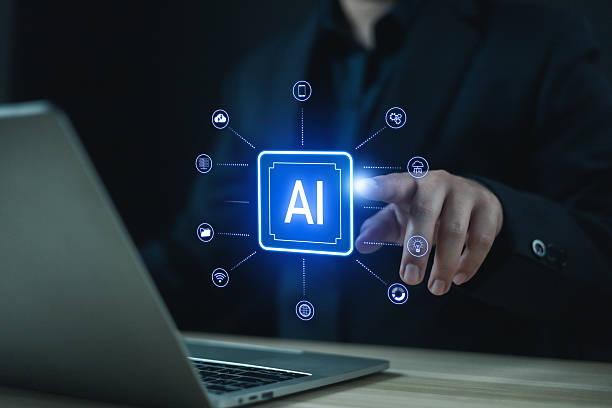What is Artificial Intelligence and How Does It Transform Jobs?
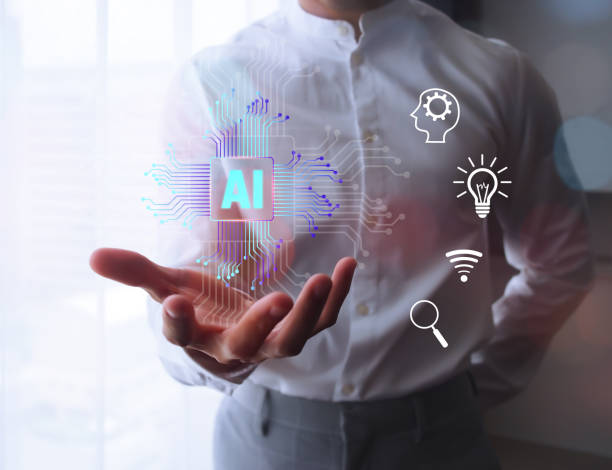
#Artificial_Intelligence (AI) refers to a branch of computer science that aims to create machines capable of performing tasks that typically require human intelligence.
This includes learning, reasoning, problem-solving, perception, and natural language understanding.
AI is rapidly advancing and has the potential to fundamentally change how we work and live.
This transformation impacts the future of AI jobs.
One of the biggest impacts of AI on jobs is automation.
AI can be used to automate many repetitive and tedious tasks currently performed by humans.
This can lead to increased productivity and reduced costs for businesses.
For example, in the manufacturing sector, AI-powered robots can automatically manage production lines, while in customer service, chatbots can answer customer queries and resolve their issues.
However, automation can also lead to job displacement.
As AI becomes capable of performing more tasks, some jobs may become obsolete.
It is important to be prepared for this change and ensure that people have the necessary skills to succeed in the new #economy.
New job opportunities are emerging in the development, implementation, and maintenance of AI systems, so investing in education and training for the future of AI jobs is crucial.
Frustrated by your e-commerce site’s low conversion rate? Rasawab transforms your online store into a powerful tool for attracting and converting customers!
✅ Significant increase in visitor-to-buyer conversion rate
✅ Unparalleled user experience to boost customer satisfaction and loyalty⚡ Get free consultation from Rasawab!
New Job Opportunities Created by Artificial Intelligence
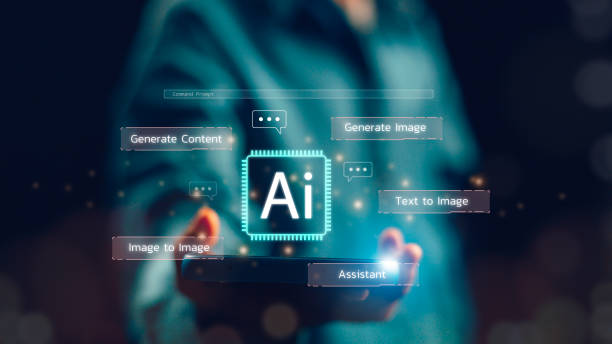
While AI can make some jobs obsolete, it also creates new job opportunities.
In fact, many experts believe that AI will ultimately create more jobs than it eliminates.
These new opportunities are emerging in various fields such as #AI_development, machine learning, data mining, and data analysis.
AI engineers, data scientists, machine learning specialists, and business analysts are just a few examples of new roles that are rapidly growing.
One of the biggest opportunities in the future of AI careers is the development and implementation of artificial intelligence systems.
This includes designing, developing, testing, and maintaining AI algorithms and models.
It also involves working with data to train these models and ensure they are accurate and reliable.
AI professionals need strong skills in mathematics, statistics, computer science, and programming.
Another opportunity in the future of AI careers is data analysis.
As companies collect more data, they need individuals who can analyze this data and extract valuable insights.
These insights can be used to improve decision-making, optimize processes, and develop new products and services.
Data analysts need strong skills in statistics, data mining, and data visualization.
Companies are looking for specialists who can use AI to gain a competitive advantage.
Skills Required for Success in the Future of AI Careers
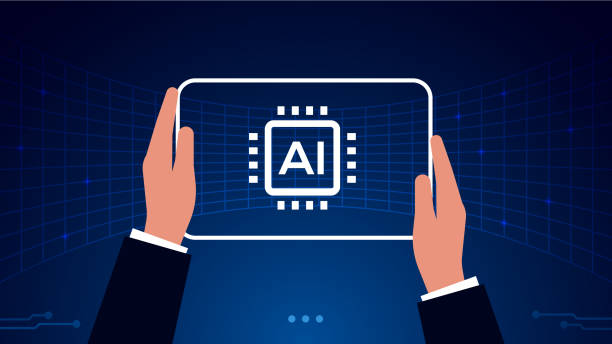
To succeed in the future of AI careers, individuals need a diverse set of skills.
This includes technical skills, soft skills, and business skills.
Technical skills include a deep understanding of AI concepts, machine learning, data mining, and programming.
Soft skills include critical thinking, problem-solving, communication, and teamwork.
Business skills include understanding the industry and market, project management, and marketing.
Having both #soft_skills and #technical_skills together prepares you to face the challenges of the future of AI careers.
Continuous learning and staying updated with the latest advancements in AI are crucial.
Online courses, conferences, and research papers are good resources for learning and skill development.
Additionally, building a professional network with other AI specialists can help you learn from others’ experiences and find new job opportunities.
The future of AI careers requires continuous education.
Here is a table showcasing some of the key skills required for the future of AI careers:
| Skill | Description |
|---|---|
| Machine Learning | Understanding machine learning algorithms and models |
| Data Mining | Extracting patterns and insights from data |
| Programming | Ability to code in languages like Python and R |
| Statistics | Statistical knowledge for data analysis |
| Critical Thinking | Ability to solve problems and make informed decisions |
Industries Most Affected by Artificial Intelligence
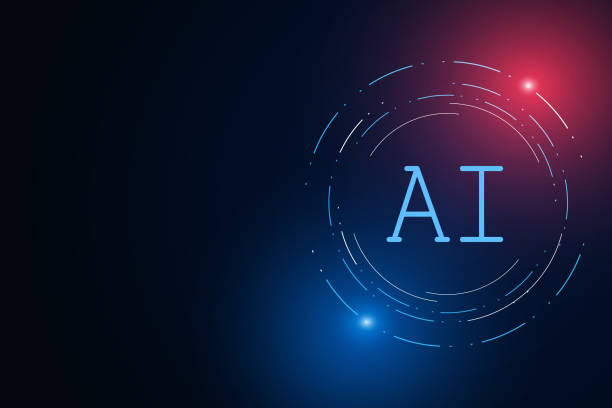
Artificial intelligence is currently used in many industries, and its impact is expected to increase in the future.
Some of the industries most affected by AI include #healthcare, #finance, #retail, #manufacturing, and #transportation.
In healthcare, AI can be used for disease diagnosis, new drug development, and improving patient care.
In finance, AI can be used for fraud detection, risk management, and providing personalized financial services.
The future of AI careers in healthcare is very bright.
In retail, AI can be used for pricing optimization, improving customer experience, and supply chain management.
In manufacturing, AI can be used for process automation, quality improvement, and cost reduction.
In transportation, AI can be used for developing self-driving vehicles, optimizing routes, and reducing traffic congestion.
The future of AI careers in finance also has many opportunities.
The future of AI careers in all these industries requires professionals who can develop, implement, and maintain these systems.
Are you tired of your company’s website failing to meet your expectations? With Rasawab, design a professional website that truly represents your business.
✅ Increased acquisition of new customers and sales leads
✅ Enhanced brand credibility and trust among your audience
⚡ Get a free website design consultation!
Challenges Facing the Future of AI Careers
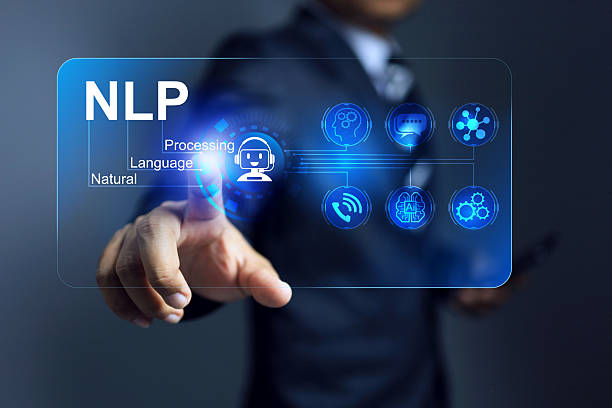
While AI creates many opportunities, there are also challenges that need to be addressed.
One of the biggest challenges is ensuring that AI is used ethically and responsibly.
This includes ensuring that AI algorithms are fair and unbiased, and prevent discrimination against specific groups.
It also involves ensuring that individuals’ privacy is protected and data is stored and used securely.
The future of AI careers must consider ethical issues.
Another challenge is ensuring that individuals have the necessary skills to succeed in the future of AI careers.
This involves investing in education and training to help people learn new skills and adapt to changes in the job market.
It also includes creating opportunities for individuals to continuously learn and stay updated with the latest advancements in AI.
The future of AI careers is intertwined with ethical issues and the need for continuous education.
Impact of Artificial Intelligence on Low-Skill and Manual Labor Jobs
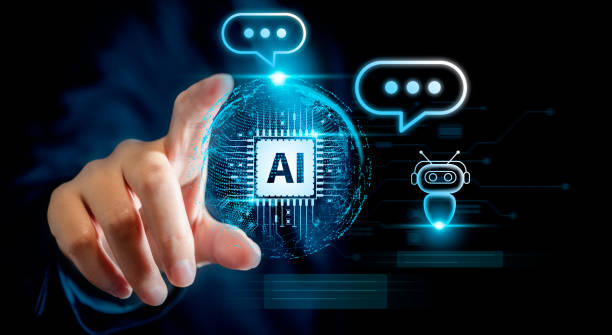
Artificial intelligence is increasingly impacting low-skill and manual labor jobs.
AI-powered automation can automate many repetitive and physical tasks currently performed by human workers.
This can lead to job losses in industries such as manufacturing, transportation, and customer service.
However, the future of AI careers in this area requires careful planning and management.
To mitigate the negative effects of automation on workers, it is important to implement policies that support workers and help them transition to new jobs.
This includes providing training and reskilling, income support, and social safety nets.
It also involves creating opportunities for workers to participate in the new economy and acquire the skills needed for success.
The future of AI careers must be designed to support workers.
Additionally, creating new jobs and entrepreneurial opportunities in the field of AI can help compensate for job losses in traditional occupations.
This includes encouraging innovation and investment in new technologies, and supporting small and medium-sized businesses.
Education and Training for the Future of AI Careers
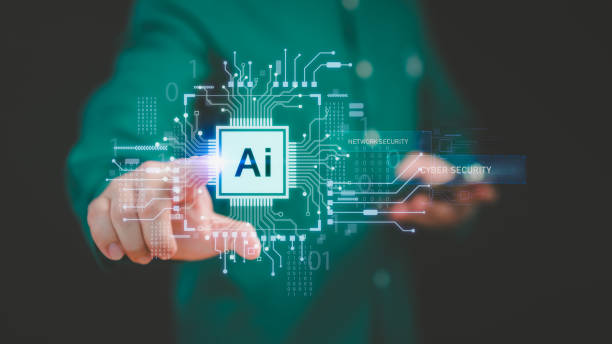
Education and training play a crucial role in preparing individuals for the future of AI careers.
To succeed in this field, individuals need technical skills, soft skills, and business skills.
Training programs should include topics such as machine learning, data mining, programming, statistics, critical thinking, problem-solving, communication, and teamwork.
These skills help individuals adapt to the changes in the future of AI careers.
In addition to formal education, there are also opportunities for informal learning, such as online courses, conferences, and workshops.
These opportunities can help individuals stay updated with the latest advancements in AI and learn new skills.
Additionally, building a professional network with other AI specialists can help individuals learn from others’ experiences and find new job opportunities.
The future of AI careers requires continuous learning.
| Type of Training | Example | Benefits |
|---|---|---|
| Online Courses | Coursera, edX | Easy access, flexible |
| Conferences | NeurIPS, ICML | Networking, learning from experts |
| Workshops | Coding workshops | Practical learning, skill practice |
| Corporate Training | In-house company training programs | Relevant to job needs, specialized |
The Role of Governments in Supporting the Future of AI Careers

Governments play a crucial role in supporting the future of AI careers.
They can contribute to the growth and development of this industry by investing in research and development, encouraging innovation, and creating a suitable regulatory environment.
Additionally, governments can help workers transition to new jobs by providing education and training, income support, and social safety nets.
These policies are essential for ensuring the future of AI careers.
Furthermore, governments can help build public trust in this technology by ensuring that AI is used ethically and responsibly.
This involves regulating the use of AI in areas such as privacy, discrimination, and security.
Governments can support the future of AI careers by regulating and overseeing AI.
Establishing an appropriate legal and ethical framework for the use of AI can help create a stable and reliable environment for the development and application of this technology.
Governments can support the future of AI careers by enacting appropriate laws.
Are you worried about your e-commerce site’s low conversion rate and not achieving your desired sales?
Rasawab is your specialized solution for having a successful e-commerce website.
✅ Significant increase in conversion rate and sales
✅ Professional and user-friendly design to attract customer satisfaction
⚡ Ready for an online sales transformation? Get a free consultation!
Cultural and Social Changes Caused by Artificial Intelligence
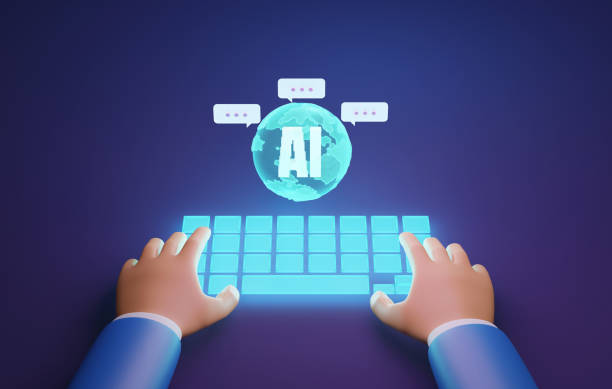
Artificial intelligence will impact not only jobs but also culture and society.
As AI becomes more integrated into our lives, we may see changes in how we interact with each other, how we make decisions, and how we perceive the world.
For example, AI can be used to create personalized media, provide customized educational services, and help us connect with other people.
These developments can contribute to the future of AI careers.
However, AI can also create challenges for culture and society.
This includes concerns about privacy, security, and the impact of AI on human relationships.
It is important to consider these challenges and ensure that AI is used in a way that benefits society.
The future of AI careers must consider these cultural and social transformations.
Some of these changes include increased use of robots and automation in daily life, changes in how we interact with information, and increased reliance on technology.
Predicting the Future of AI Careers – A Look at the Coming Years
![]()
Predicting the future of AI careers is challenging, but we can make informed guesses by examining current trends and emerging technologies.
Overall, AI is expected to become increasingly integrated into all aspects of our lives, having a profound impact on jobs and society.
New job opportunities are expected to emerge in the field of AI, but we may also see job losses in traditional occupations.
These predictions must be considered for the future of AI careers.
To prepare for the future of AI careers, it is important to develop technical skills, soft skills, and business skills.
Additionally, we must consider the ethical and social issues related to AI and ensure that this technology is used in a way that benefits society.
The future of AI careers is bright, but it requires preparation and strategic thinking.
Frequently Asked Questions
| Question | Answer |
|---|---|
| What impact will AI have on the future job market? | AI will automate repetitive jobs, but at the same time, it will create new and more complex jobs in areas such as the development, maintenance, and training of AI systems. |
| Which jobs are most at risk of being replaced by AI? | Jobs involving repetitive, rule-based tasks with low requirements for creativity or emotional intelligence, such as some manufacturing jobs, data entry, and simple customer service, are most at risk. |
| What skills are essential for success in the future of jobs with AI? | Skills such as critical thinking, complex problem-solving, creativity, emotional intelligence, data literacy, the ability to work with AI, and lifelong learning are of high importance. |
| Will AI cause widespread unemployment? | Some jobs will be lost, but history has shown that new technologies, instead of causing widespread unemployment, reshape the job market and create new jobs. The need for adaptability and retraining is crucial. |
| What new job opportunities emerge with the rise of AI? | Jobs such as Machine Learning Engineer, Data Scientist, AI Ethicist, Human-AI Interaction Designer, and Digital Transformation Consultant are among the new opportunities. |
| What is the role of education in preparing for the future of jobs with AI? | Education should focus on developing soft skills, computational thinking, digital literacy, and the ability for continuous learning to prepare individuals for future changes. |
| How can I prepare myself for changes in the job market caused by AI? | You can prepare yourself by learning new skills related to AI and data, strengthening soft skills, developing critical thinking and creativity, and adopting lifelong learning. |
| Will AI ethics become an important career field? | Yes, given increasing concerns about biases, privacy, and automated decision-making in AI, the role of AI ethics specialists will become crucial for ensuring its responsible development. |
| What is the importance of human-AI collaboration in the future of work? | Human-AI collaboration, rather than competition, will shape the future of the job market. AI can be a tool to increase human productivity and allow focus on more complex and creative tasks. |
| Which industries will be most affected by AI? | Almost all industries will be affected, but sectors such as healthcare, finance, transportation, manufacturing, education, and customer service are pioneers in adopting and transforming through AI. |
And other advertising services of Rasaweb Advertising Agency
- Smart Advertising Campaign: An innovative service to increase website traffic through Google Ads management.
- Smart Advertising Campaign: An innovative service to increase click-through rates through SEO-driven content strategy.
- Smart Direct Marketing: A specialized service for growth in campaign management based on intelligent data analysis.
- Smart Digital Advertising: A specialized service for growth in sales based on the use of real data.
- Smart Direct Marketing: A combination of creativity and technology for campaign management through custom programming.
And over a hundred other services in online advertising, advertising consulting, and organizational solutions
Online Advertising | Advertising Strategy | Advertorials
Resources
Digiato: Analytical AI Career FutureJobinja: AI Opportunities and ChallengesVirgool: AI Career OutlookISNA: AI and the Future Job Market
❓ Are you ready to transform your business in the digital space? Rasawab Afarin Digital Marketing Agency, with its comprehensive and specialized services, is your guide on the path to online brilliance. With years of experience, we help businesses establish a powerful and effective presence in the digital world.
From Search Engine Optimization (SEO) strategies and content marketing to responsive website design and targeted advertising campaigns, we cover all your digital needs. Our goal is to increase your visibility, attract more customers, and ultimately ensure the sustainable growth of your business.
By trusting the expertise of the Rasawab Afarin team, you can confidently entrust the digital future of your business to us. We are committed to achieving the best results for you and ensuring that your brand shines in today’s competitive landscape. Take a strong step towards great success with Rasawab Afarin.
📍 Tehran, Mirdamad Street, Next to Central Bank, Kazeroon Southern Alley, Ramin Alley, No. 6

